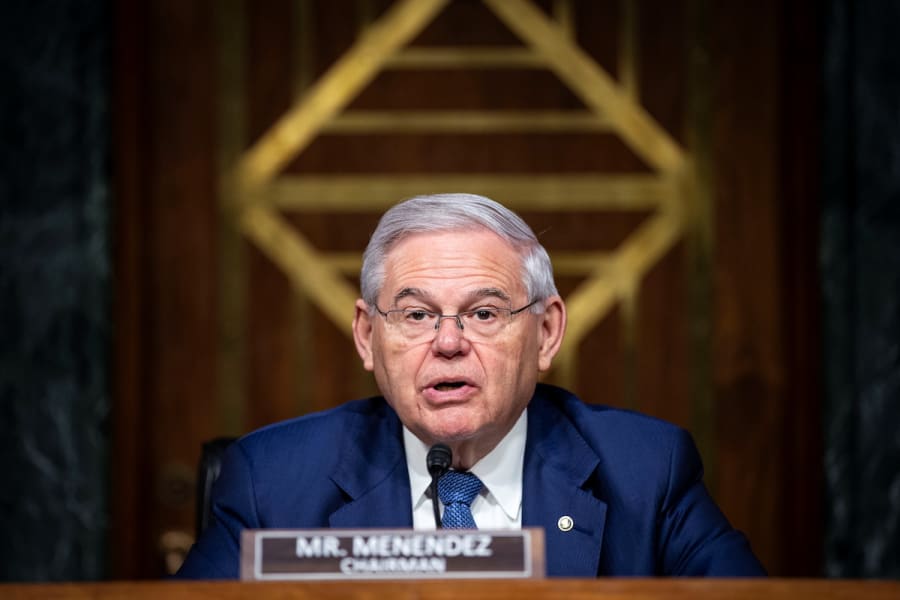Time to end diplomacy with Iran, says top Senate Democrat Bob Menendez
U.S. Senate Foreign Relations Committee chairman calls on President Biden to snap back sanctions against Iran and create military deterrence

Democrat Sen. Bob Menendez of New Jersey, who serves as the chairman of the Senate Foreign Relations Committee, believes it is time for the Biden administration and European allies of the United States to end nuclear negotiations with Iran.
“It is time to tell the Europeans – who[m] we have shown good faith with, that we were willing to enter into what was hopefully a stronger and longer deal – that the Iranians are not there,” the senator said at the AIPAC New Jersey Spring Leadership Dinner on Tuesday.
Diplomacy is no longer the right option at this point, according to Menendez.
“How is it that Iran is in a position to advance by leaps and bounds and somehow, if it wasn’t good enough by the end of January, how could it possibly be good enough by the end of May?” he asked.
He called on U.S. President Joe Biden to “snap back sanctions and/or participate in multilateral efforts to sanction Iran.”
Menendez also urged the White House to target Chinese purchases of Iranian oil that are worth millions of dollars.
In addition, he emphasized the need to create a military deterrence against Iran's hostile activities.
“The United States has to demonstrate that we have the will as well as the military capabilities… to defend our people and our interests,” he said.
The Jewish Insider quoted the top Democrat saying, “We need a plan moving forward.” The report mentioned that Menendez is propose legislation that will “ultimately dictate what a plan should be.”
As in previous remarks Menendez made to an AIPAC audience, he did not spare criticism of the Trump administration’s decision to abandon the original deal, “without a plan, without a strategy, without allies.”
Menendez is worried that any attempt to revive the Joint Comprehensive Plan of Action (JCPOA) would be even worse than the original deal, resulting in a “shorter and weaker” agreement.
The U.S. has been in indirect nuclear talks with Iran and other world powers for over a year now. The talks have recently come to a stalemate following Iran’s demand to de-list the Islamic Revolutionary Guard Corps (IRGC) from the Foreign Terrorist Organizations list – the main sticking point for Iran.
Last week, U.S. President Joe Biden made his final decision not to re-designate the IRGC. The move was widely welcomed in Israel and has raised questions over the likelihood of a possible new nuclear deal.
Moreover, the International Atomic Energy Agency (IAEA) said on Monday that Iran has sufficient amounts of uranium in its stockpile to develop a nuclear weapon. The nuclear watchdog noted that Iran has failed to provide credible response regarding nuclear materials recently found at three sites which Tehran has not declared as nuclear active.
On Wednesday, Tehran responded to the IAEA’s report, saying it is neither fair nor balanced.
"Unfortunately, this report does not reflect the reality of the negotiations between Iran and the IAEA," said Iran’s Foreign Ministry spokesman Saeed Khatibzadeh.

Tal Heinrich is a senior correspondent for both ALL ISRAEL NEWS and ALL ARAB NEWS. She is currently based in New York City. Tal also provides reports and analysis for Israeli Hebrew media Channel 14 News.














